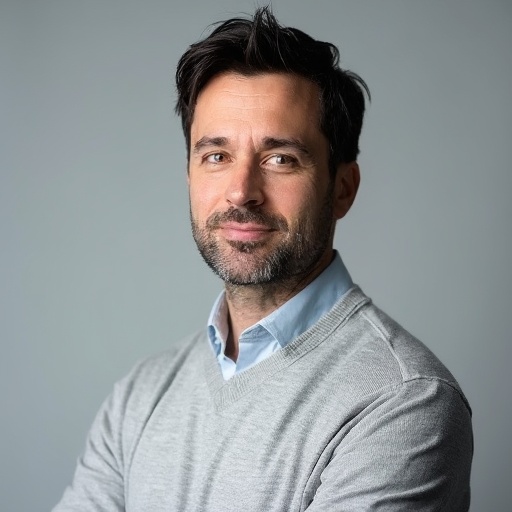John F. Kennedy (1917–1963)

John F. Kennedy, the 35th President of the United States, was assassinated at age 46 while riding in a Dallas motorcade on November 22, 1963. His presidency, though brief, was marked by the Cuban Missile Crisis, the creation of the Peace Corps, and bold moves toward civil rights. Kennedy’s ability to inspire hope and push for change left an indelible mark on American politics. According to Gallup, his approval rating at the time of his death was a remarkable 70%. In 2023, historians continue to rank JFK among the most influential US presidents, with new declassified documents shedding light on his strategic thinking during crises. His sudden death shocked the world and left many wondering what more he could have achieved.
Benazir Bhutto (1953–2007)

Benazir Bhutto, the first woman to lead a Muslim-majority nation, served as Pakistan’s Prime Minister in two terms before her assassination at 54 in 2007. Bhutto’s legacy is tied to her courageous stance against extremism and her efforts to modernize Pakistan. A 2024 research report by the Carnegie Endowment highlights her role in inspiring women’s political participation across Asia. Her assassination—still shrouded in controversy—sparked protests and intensified debates on democracy in Pakistan. Bhutto’s vision for a progressive Pakistan continues to be referenced in current political movements, especially as the country faces ongoing political turmoil.
Robert F. Kennedy (1925–1968)

Robert F. Kennedy, brother of JFK and a leading US Senator, was murdered at 42, shortly after winning the California primary for the Democratic presidential nomination in 1968. He championed civil rights, fought organized crime, and called for an end to the Vietnam War. According to Pew Research data from 2024, his speeches on social justice and equality are frequently quoted by modern activists. RFK’s unique ability to unite diverse groups was rare in American politics. His campaign was gaining unprecedented momentum before his assassination in Los Angeles, leaving many to speculate on how US history might have changed under his leadership.
Jo Cox (1974–2016)

Jo Cox was a rising star in British politics, known for her dedication to humanitarian causes and her tenure as Labour MP for Batley and Spen. She was murdered at age 41 in 2016, just days before the Brexit referendum. Her death was cited in a 2023 House of Commons report as a turning point that sparked renewed debate on political discourse and public safety in the UK. Cox’s legacy includes the Jo Cox Foundation, which promotes community cohesion and political kindness. Her advocacy for refugees and marginalized groups continues to inspire British lawmakers today.
Dag Hammarskjöld (1905–1961)

Dag Hammarskjöld, the second Secretary-General of the United Nations, died in a plane crash in 1961 at age 56 while on a peace mission in Africa. Hammarskjöld’s leadership during the Congo Crisis and his push for UN independence are still studied in international relations courses. In 2024, the UN released previously classified documents confirming his commitment to diplomacy and peacemaking, adding new depth to his legacy. Many diplomats today reference Hammarskjöld’s moral vision and courage as benchmarks for international service. The circumstances of his death remain the subject of ongoing UN investigations.
Thomas Sankara (1949–1987)

Thomas Sankara, the charismatic President of Burkina Faso, was assassinated at only 37. Known as “Africa’s Che Guevara,” he implemented sweeping reforms in health, education, and women’s rights. A 2023 report by Human Rights Watch highlights Sankara’s anti-corruption measures and efforts to reduce foreign dependency, which still influence African youth movements. Sankara’s boldness and vision made him a symbol of hope, and his assassination is still mourned by many across Africa. His speeches and quotes are frequently shared on social media, especially amid recent protests for good governance in West Africa.
Yitzhak Rabin (1922–1995)

Yitzhak Rabin, former Prime Minister of Israel and Nobel Peace Prize laureate, was assassinated in 1995 at age 73 during a peace rally in Tel Aviv. Rabin played a key role in the Oslo Accords and was a fierce advocate for a two-state solution. Israeli public opinion polls from 2025 show Rabin remains one of the country’s most respected leaders, with many Israelis viewing his death as a pivotal moment that changed the nation’s trajectory. Annual memorials and events in Israel continue to draw large crowds, reflecting the enduring impact of his leadership.
Anna Lindh (1957–2003)

Anna Lindh, Sweden’s Foreign Minister, was murdered at 46 while campaigning for the country’s adoption of the euro. Lindh was highly regarded for her commitment to European integration and her clear stance on human rights. According to a 2024 poll by Statista, public trust in Swedish politicians declined sharply following her death, highlighting her unique influence. Her murder led to major changes in Swedish security protocols for politicians. Lindh’s vision for a united Europe is still cited by Swedish and European Union leaders today.
Harvey Milk (1930–1978)

Harvey Milk, the first openly gay elected official in California, was assassinated at 48 in 1978. Milk’s advocacy for LGBTQ+ rights transformed San Francisco and inspired movements worldwide. In 2025, a Gallup poll showed that 73% of Americans now support same-sex marriage, a testament to the groundwork laid by pioneers like Milk. His life and death were dramatized in an Oscar-winning film, ensuring his legacy remains part of public consciousness. Milk’s courage continues to inspire activists fighting for equality and justice around the globe.
Sergei Magnitsky (1972–2009)

Sergei Magnitsky was a Russian tax lawyer and whistleblower who died in prison at 37 after exposing large-scale corruption. His case led to the US Magnitsky Act, which penalizes officials implicated in human rights abuses. According to a 2023 report by Amnesty International, the law has since inspired similar legislation in Canada, the UK, and the EU. Magnitsky’s story is a rallying point for anti-corruption advocates and has changed the way governments address international human rights violations. His name remains synonymous with the global fight against state-sponsored corruption.
Gauri Lankesh (1962–2017)

Gauri Lankesh, an outspoken Indian journalist and political activist, was shot dead at age 55 outside her home in Bangalore. Lankesh was known for her fierce criticism of religious extremism and her advocacy for press freedom. In a 2024 survey by Reporters Without Borders, her murder is cited as a major example of rising threats to journalists in South Asia. Lankesh’s fearless reporting inspired protests and a renewed movement for media protection in India. Her work continues to influence investigative journalists and activists fighting for freedom of expression.


